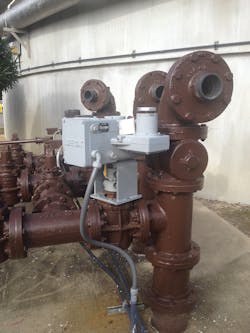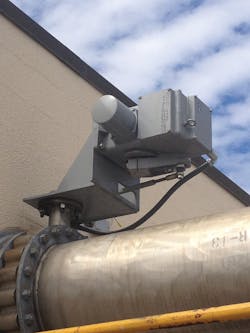Extending the Actuator Life Cycle
In many water treatment plants, conventional, high-maintenance electric actuators are still in use despite new innovation that solves common pain points such as frequent maintenance, motor burnout and other typical component failures. Given the high demand and harsh weather conditions that affect many of these plants, it is especially important that modern water treatment plants utilize actuators that provide dependable control day in and day out without breakdowns, outages in service or any unnecessary maintenance expenses.
Though the replacement of conventional electric actuators seems like a hefty task, the long-term benefit is exponential. A wastewater treatment plant in Florida has been utilizing 17 Beck electric actuators since 2006. The facility processes 5 million gallons per day using a sequential batch reactor process to treat the water. Beck Actuators are installed on the main plant influent, aeration blower, decant and waste activated sludge (WAS) valves in both modulating and open/close service. The plant has not required service or any repair parts since installation in 2006.
Conventional electric actuators that use an induction motor are duty-cycle limited and are prone to wear, lubrication problems and component failures that make them time consuming and expensive to maintain. Picking an actuator with the right motor and gear train design can minimize or eliminate actuator maintenance and downtime resulting from failed actuators.
Finding the right maintenance-free electric actuator means choosing one without torque switches, worm gears, oil to leak, or modulation rate restrictions. Beck actuators are designed around a permanent magnet, synchronous motor that will not overheat or burn out even with continuous duty. This eliminates periodic maintenance, drastically reducing the life-cycle repair and maintenance costs that are usually associated with conventional electric actuators, not only for the short term but indefinitely.
There are currently thousands of Beck actuators installed in water facilities experiencing the long-term benefit of reliable, innovative technology with excellent results in both potable water and wastewater treatment applications. WW
For more than 80 years, Beck has engineered reliable and precise actuators that help keep industry running smoothly. To learn more, visit www.haroldbeck.com.

